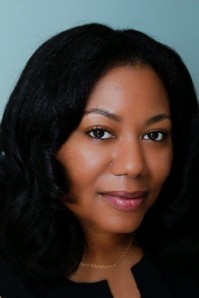Tag: NPR
Final NPR newsmag clocks will take effect Nov. 17
NPR has released the final versions of the new clocks for its newsmagazines and set a date of Nov. 17 for their ...CPB bumps up two, “Blues Doctor” retires, and more comings and goings in public media
CPB has promoted two executives, Greg Schnirring and Erika Pulley-Hayes.Crane, Savage elected as new NPR board members
The month-long election for NPR’s Board of Directors closed Monday, with two incumbents and two new faces joining the board. NPR announced Tuesday ...How stations can stay relevant as listeners go elsewhere for NPR content
The public radio economy is built on $432 million in annual listener contributions to local public radio stations. Each year nearly 3 ...Tuesday roundup: Black journalists give NPR thumbs down; Fahle looks back on WDET career
Plus: An Israeli show inspired by This American Life offers an English translation, and NPR's ombud weighs in on sexism in coverage.NPR delays implementing new program clocks until at least November
NPR will postpone implementing new clocks for its flagship newsmagazines until at least November after hearing concerns that an earlier transition could ...Documentary series The View From Here attracts national attention with multimedia, audience interaction
A documentary series produced by Capital Public Radio in Sacramento, Calif., focuses solely on issues in the station’s home state yet has ...Former intern sues NPR, alleging employment discrimination
A deaf college student has filed a lawsuit against NPR for employment discrimination, claiming that the network misrepresented the terms of the ...NPR Labs to end run as stand-alone unit after losing consulting work
NPR will integrate NPR Labs into its general budget and tighten its focus on public radio after almost five years of running ...Day One of NPR One: Some first reactions
NPR’s long-awaited mobile app NPR One launched yesterday, allowing iPhone and Android users to tune into a stream of curated and algorithm-powered newscasts, ...Margot Adler, veteran NPR correspondent, dies at 68
Margot Adler, a longtime NPR correspondent and former contributor to Pacifica Radio, died July 28 after a three-year battle with cancer. She ...Madison Hodges, longtime station manager and pubradio advocate, dies at 66
Madison Hodges, a longtime manager of public radio stations and advocate for the system who worked to increase the community impact of ...New digital offerings from NPR, PBS promise closer look at how users consume content
New digital offerings from NPR and PBS aim to give public media additional platforms for building online audiences while gaining insights into ...After criticism, NPR gives freer rein to upcoming ombudsman
NPR has stepped back from plans to curtail its ombudsman’s duties after receiving criticism from journalists and leaders of its member stations. The ...Wednesday roundup: Rosen criticizes NPR ombud posting; contest calls for tote-bag designs
Plus: Scott Nourse joins PBS Digital, and the Radiolab guys visit Colbert.



